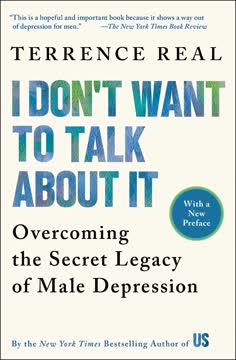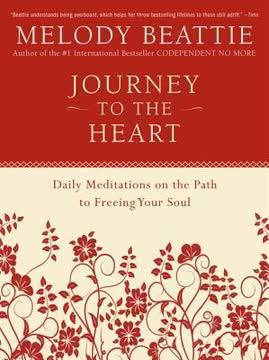Key Takeaways
1. Codependency: The art of losing yourself in others
I know what it's like to lose yourself so badly that you don't know if there's a you or ever was one.
Understanding codependency. Codependency is a pattern of behavior where individuals become excessively involved in the lives of others, often at the expense of their own well-being. It's characterized by:
- Excessive caretaking and neglecting oneself
- Difficulty setting boundaries
- Obsessive need to control others
- Low self-esteem and lack of self-identity
Origins and impacts. Codependency often stems from dysfunctional family dynamics, trauma, or addiction. It can lead to:
- Unhealthy relationships
- Emotional exhaustion
- Anxiety and depression
- Loss of personal identity and goals
2. Breaking free from the control trap and embracing grace
When we step into the control trap, we step out of Grace.
Recognizing the illusion of control. The desire to control others and situations is a common trait in codependency. However, this need for control is often rooted in fear and insecurity. Letting go of control allows for:
- Reduced anxiety and stress
- Improved relationships
- Increased personal growth and self-discovery
Embracing grace and surrender. Grace is the gift of acceptance and peace that comes when we stop trying to manipulate outcomes. It involves:
- Trusting in a higher power or the natural flow of life
- Accepting what we cannot change
- Focusing on our own actions and responses rather than others'
3. Boundaries: The limits of love and self-respect
Boundaries are the limits of love.
Importance of healthy boundaries. Boundaries are essential for maintaining healthy relationships and self-respect. They involve:
- Clearly communicating our needs and limits
- Respecting others' boundaries
- Learning to say "no" without guilt
Setting and enforcing boundaries. Effective boundary-setting requires:
- Self-awareness and self-respect
- Consistency and follow-through
- Willingness to face discomfort and potential conflict
4. Healing from past wounds and family legacies
Honoring our ancestors honors us.
Acknowledging family of origin issues. Our upbringing and family dynamics significantly influence our adult behaviors and relationships. Healing involves:
- Recognizing unhealthy patterns learned in childhood
- Understanding how past experiences shape current behaviors
- Forgiving ourselves and others for past hurts
Creating a new legacy. We have the power to break generational cycles and create healthier patterns:
- Choosing new, empowering beliefs about ourselves and others
- Practicing self-compassion and self-care
- Seeking support through therapy or support groups
5. The power of self-love and nurturing
Self-appreciation is gratitude and love rolled into one.
Cultivating self-love. Many codependents struggle with low self-worth. Developing self-love is crucial for healing and involves:
- Practicing self-compassion and forgiveness
- Recognizing and celebrating our strengths and achievements
- Prioritizing self-care and personal growth
Nurturing ourselves and others. True nurturing comes from a place of wholeness, not neediness:
- Meeting our own emotional needs first
- Giving from a place of abundance rather than emptiness
- Allowing others to care for themselves
6. Embracing emotions: From repression to expression
Denial is like the blind spot on our car. We can't see what's there.
Understanding emotional repression. Many codependents learn to suppress their emotions as a survival mechanism. This can lead to:
- Emotional numbness or volatility
- Physical health issues
- Difficulty in intimate relationships
Healthy emotional expression. Learning to feel and express emotions involves:
- Identifying and naming our feelings
- Allowing ourselves to experience emotions without judgment
- Finding healthy outlets for emotional expression (e.g., journaling, art, physical activity)
7. Letting go: The path to true peace and power
Surrender only hurts until we do it. Not surrendering is what hurts.
The power of surrender. Letting go of control, resentments, and unrealistic expectations is key to finding peace:
- Accepting what we cannot change
- Focusing on our own growth and healing
- Trusting in the natural flow of life
Finding true empowerment. Paradoxically, surrendering control leads to genuine personal power:
- Aligning with our authentic selves
- Making choices from a place of inner wisdom rather than fear
- Experiencing greater peace and contentment in life
Last updated:
FAQ
What's The New Codependency about?
- Focus on Codependency: The New Codependency by Melody Beattie delves into the concept of codependency, characterized by an excessive emotional or psychological reliance on others, often leading to unhealthy relationship dynamics.
- Target Audience: It is aimed at individuals affected by someone’s addiction, caretakers, and those struggling with self-care, offering insights into healthier relationships and self-empowerment.
- Structure and Content: The book is structured into sections focusing on aspects like self-care, boundaries, and communication, guiding readers through codependency recovery.
Why should I read The New Codependency?
- Personal Growth: The book helps individuals recognize and address codependent behaviors, promoting personal growth and healthier relationships.
- Comprehensive Understanding: It provides a thorough understanding of codependency, its origins, and its impact, empowering readers to break free from unhealthy patterns.
- Supportive Resources: Beattie includes resources, activities, and quizzes to engage readers actively, making the learning process effective and relatable.
What are the key takeaways of The New Codependency?
- Self-Care is Essential: Emphasizes the importance of self-care as necessary for healthy relationships and personal well-being.
- Boundaries Matter: Highlights the significance of setting boundaries, stating that they are crucial for thriving relationships.
- Letting Go of Control: Encourages readers to let go of the illusion of control over others, promoting surrender and acceptance.
How does Melody Beattie define codependency in The New Codependency?
- Definition of Codependency: Beattie defines it as a pattern where individuals allow others' behaviors to deeply affect them, leading to obsessive control attempts.
- Common Misconceptions: Clarifies that codependency is not just about being overly caring but involves a loss of self and unhealthy attachments.
- Evolving Understanding: Discusses how the understanding of codependency has evolved, reflecting changing relationship dynamics.
What practical strategies does The New Codependency offer for overcoming codependency?
- Practice Self-Care: Encourages prioritizing personal needs and well-being as foundational for overcoming codependency.
- Set Boundaries: Provides guidance on establishing and maintaining healthy boundaries, essential for mutual respect in relationships.
- Let Go of Control: Advises learning to relinquish control over others, highlighting the importance of surrendering to what cannot be changed.
What is the "catch and release" method mentioned in The New Codependency?
- Feeling Emotions Fully: Involves fully experiencing an emotion before letting it go, helping individuals acknowledge feelings without being overwhelmed.
- Preventing Emotional Buildup: This method prevents emotions from building up and causing distress, promoting a healthier relationship with feelings.
- Natural Process: Beattie emphasizes it as a natural way to deal with emotions, allowing connection with true selves and learning from feelings.
How does The New Codependency address the concept of boundaries?
- Importance of Boundaries: Stresses that boundaries are essential for healthy relationships, preventing toxicity and imbalance.
- Practical Guidance: Offers advice on setting and communicating boundaries effectively, crucial for maintaining self-respect.
- Boundary Challenges: Acknowledges the difficulty in setting boundaries for codependents, encouraging consistent practice for healthier interactions.
How does The New Codependency redefine the concept of love?
- Love vs. Control: Redefines love as selfless and compassionate, contrasting it with controlling behaviors in codependent relationships.
- Healthy Relationships: Emphasizes that love should foster mutual respect and support, not dependency or manipulation.
- Universal Connection: Suggests love is a universal connection, reinforcing the idea of oneness and shared humanity.
How does The New Codependency address grief and its connection to codependency?
- Grief as a Catalyst: Discusses how unresolved grief can lead to codependent behaviors, as individuals may cling to relationships to avoid pain.
- Stages of Grief: Outlines how stages of grief can manifest as codependent behaviors, aiding in processing emotions effectively.
- Healing Through Acknowledgment: Encourages acknowledging grief and feeling it fully, essential for moving past codependency.
What role does communication play in overcoming codependency in The New Codependency?
- Effective Communication: Highlights the importance of clear and honest communication for expressing needs and feelings.
- Harmonizing vs. Confrontation: Discusses harmonizing as a more productive approach than confrontation in communication.
- Listening and Presence: Emphasizes active listening and presence in conversations, enhancing understanding and connection.
How can I identify if I am codependent according to The New Codependency?
- Self-Assessment Questions: Suggests asking specific questions about emotional patterns to identify codependent traits.
- Behavioral Patterns: Look for signs like neglecting personal needs or feeling guilty for prioritizing oneself.
- Feedback from Others: Encourages seeking feedback from trusted individuals for additional insight into behaviors and relationships.
What are the best quotes from The New Codependency and what do they mean?
- "Self-love means trusting ourselves": Highlights the importance of self-trust in recovering from codependency, recognizing and honoring one's needs.
- "Love suffers long and is kind; love . . . does not seek its own": Illustrates the difference between love and control, emphasizing selfless and compassionate love.
- "Control makes us feel tense, rigid, and uncomfortable inside": Captures the emotional toll of controlling others, reminding that relinquishing control leads to peace.
Review Summary
The New Codependency received mixed reviews, with an average rating of 3.93/5. Many readers found it helpful for understanding codependency and setting boundaries. However, some criticized its religious content, outdated views, and lack of professional credentials. Positive aspects included practical advice and relatable examples. Criticisms focused on the author's anti-medication stance, disorganized writing, and overemphasis on 12-step programs. Some readers appreciated the book's insights despite disagreeing with certain aspects, while others found it disappointing compared to the author's earlier work.
Similar Books










Download PDF
Download EPUB
.epub digital book format is ideal for reading ebooks on phones, tablets, and e-readers.












